Pronouns should be more accepted by others
Pronoun usage is a topic discussed frequently among students.
No two people are the same, although there may be similarities.
Everyone has pronouns, whether people are aware of them or not. Typical pronouns would be she/her or he/him. When talking about someone or to someone, one would say, “She is very pretty.” Some people go by other pronouns or “opposite” of what others would typically use.
For example, people can go by they/them such as, “They are a cool person.” There’s also other variants called neopronouns which could consist of anything from xe/xem to it/its or even cloud/clouds.
“I use she/they pronouns. They differ from “typical” she/her or he/him because they are describing a non-binary person. Many people misinterpret they/them pronouns as meaning more than one person. In reality we use they/them for just one person all the time. For example ‘Their book is over there.’ meaning that person’s book is over there. Or ‘They are right there.’ referring to the person right there regardless of their pronouns,” sophomore Kirstyn Hood said.
Teachers try their hardest to make accommodations for students
“Typically, if a student addresses this topic, I will talk with them in a 1 on 1 environment and explain to them that I appreciate them telling me this information because I want to address them in the way that they identify and that they are most comfortable with. However, I am only human and can make mistakes. I am always sure to tell the student that if I ever get their pronouns incorrect while in class, I have an ‘open door’ policy where I hope that the student will talk to me privately and let me know of my mistake so that I can be more aware of this in the future,” Spanish teacher Dane Leone said.
Without the comfort of a teacher to have a student’s back, people feel incredibly stuck and don’t know how to address issues with pronouns such as correcting incorrect use of pronouns.
Someone may be wondering, ‘What do I do if I accidentally call someone by the wrong pronouns?’
One key aspect to remember is that it isn’t necessary to drag the apology out and make it last longer than a normal apology would be. People are considerate and will realize it is a mistake.
More help can be found at https://uwm.edu/lgbtrc/qa_faqs/what-if-i-make-a-mistake/.
In addition, pronouns are a rather large debate between many people. Some feel as though some pronouns are weird or odd to use and some feel as though they’re improper to use on people. The biggest debate is usually on neopronouns. Pronouns such as one/oneself or even moon/moonself. They aren’t a typical she/he/they and instead tend to take after animals or objects.
Someone doesn’t necessarily need to identify as non-binary or anything but cis-gender to use “different” pronouns. I know plenty of cis-gender people that use they/them without identifying as non-binary.
A common issue is people talking about others’ pronouns. If they aren’t the person, they should not be telling them what their pronouns are.
“I think that it is great that people are beginning to be more accepting of a variety of different pronouns being used because at the end of the day the only people that pronouns affect are the person themselves, and as long as we are making them feel comfortable and accepted, we are doing our job right,” Leone said.
“I wish people could understand that you can’t help how people feel. Many people make jokes about how they feel like a cat, so they guess they identify as a cat now. The people that do that are disrespectful and ignorant to what pronouns are. I believe some people refuse to accept them because they believe they tie in with the LGBTQ+ community; that’s not the case though. Everyone has pronouns and everyone uses them everyday,” Hood said.
Most people use pronouns and feel a sense of “comfort,” or feel happier using they/them [for example] over he/him or she/her.
“These pronouns make me feel valid. I feel very feminine sometimes and like when people use she/her. But at the same time, there are moments where I feel very androgynous. There are moments where I don’t feel like a girl. I also don’t feel like a boy. I feel like I’m in the middle of the spectrum. Such a sense of femininity, but also a sense of masculinity,” Hood said.
Some misconceptions about pronouns are that they are someones’ gender. Pronouns do not equal gender. When someone use a “different” set of pronouns, it doesn’t necessarily mean they themselves are transgender and are transitioning. Pronouns are simply what to refer to as someone if they don’t use their name.
Another issue is using they/them on someone they know does not like they/them being used on them. Or even using neopronouns on someone who doesn’t like them nor want to use them. No matter who they are, people must respect their pronouns/gender/sexuality. Using the wrong pronouns on accident is fine, as long as you realize the mistake. A trans person who refuses to use the right pronouns, would still be considered transphobic.
Not everyone will respect pronouns nor think they are important. But it’s common human decency to respect pronouns. After all, everyone has pronouns.
“I try my best to listen to where they come from because not everyone is accepting of different pronouns or sexuality. I don’t push or try to force them to accept me. I used to when I first came out, but now that it’s been a few years, I’ve learned some people just won’t accept you for you,” Hood said.

Hello! My name is Lillian, or Lily, and I'm one of the Editor in Chiefs of the Mountain Echo. I've been writing since my sophomore year for the Mountain...

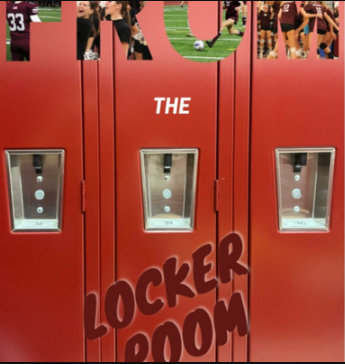
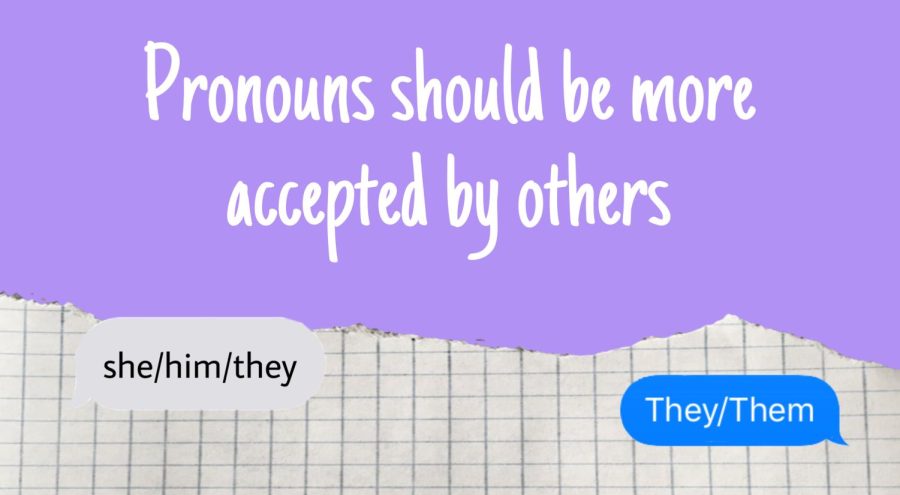


![The release of Lisa Frankenstein on February 9, 2024, has made it the best movie of the year so far. [Made with Canva]](https://aahsmountainecho.com/wp-content/uploads/2024/04/LisaFrankenstein-cover-1-450x600.jpg)
![Rivals. Spotify and Apple Music are the most even on the streaming-service playing field. Spotify was officially launched in 2008, and Apple Music in 2015. [Made with Canva]](https://aahsmountainecho.com/wp-content/uploads/2024/04/Spotify-vs-Apple-music-600x600.png)
![Lets go Bucs! The Pirates 2024 season started on March 28 with a game against the Marlins. [Made with Canva]](https://aahsmountainecho.com/wp-content/uploads/2024/04/Pirates-season-underway-600x600.jpg)
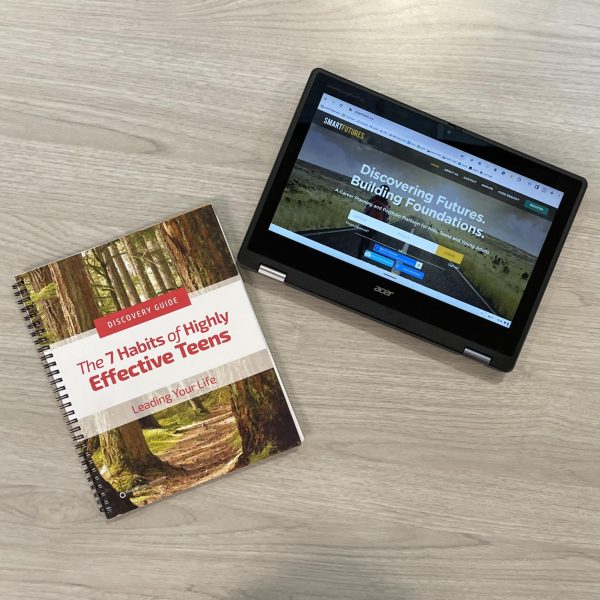
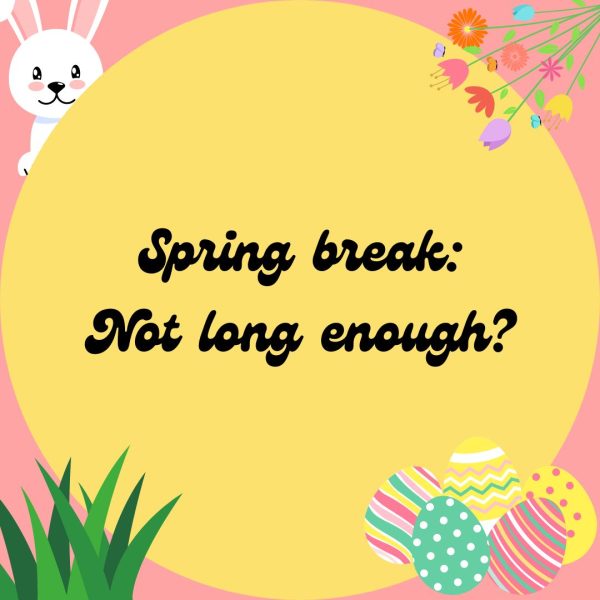

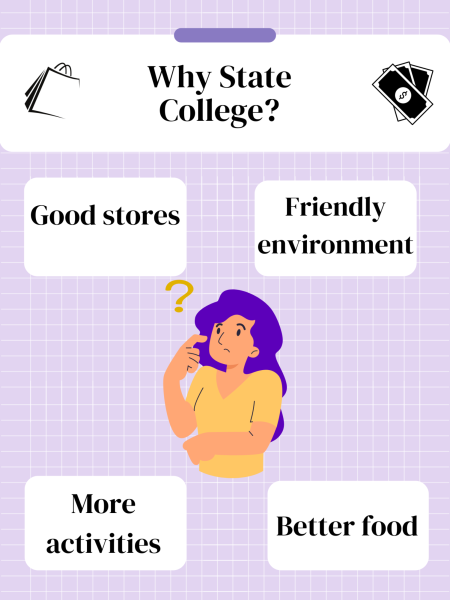
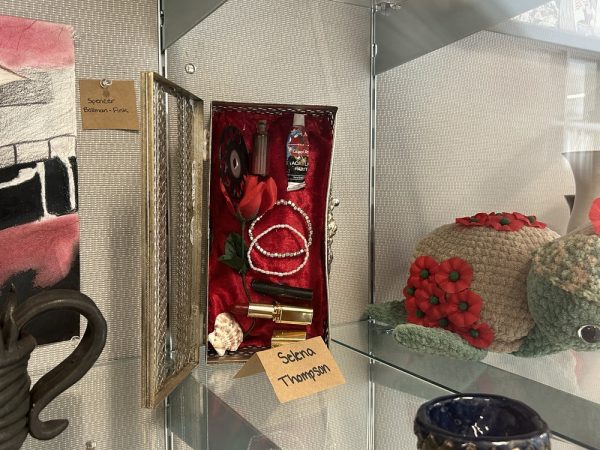
Vivian Varner • Mar 14, 2022 at 9:32 am
Its nice to see someone using their voice to speak out about this! Thank you
Eric Carlheim • Mar 2, 2022 at 9:16 am
thank you for talking about this!
eli • Feb 6, 2022 at 7:48 pm
good and informative article, well said